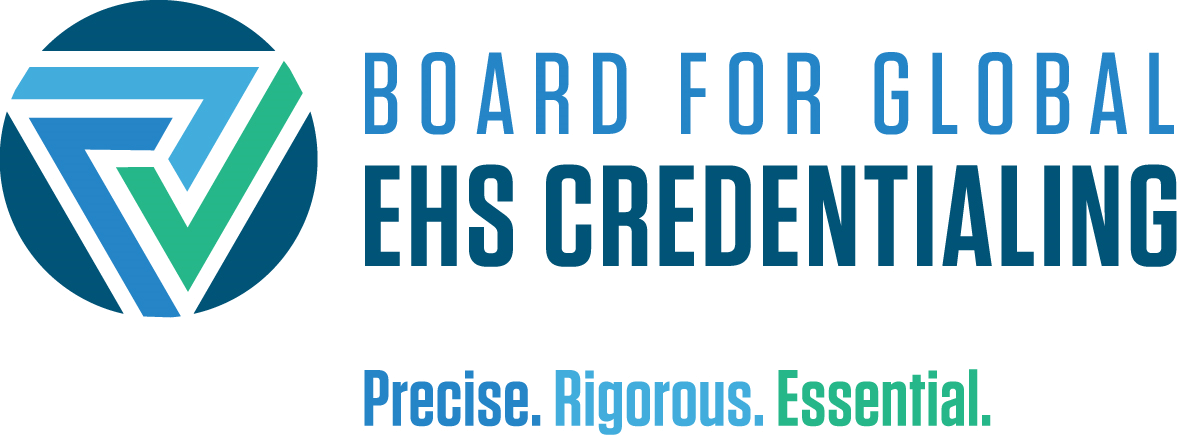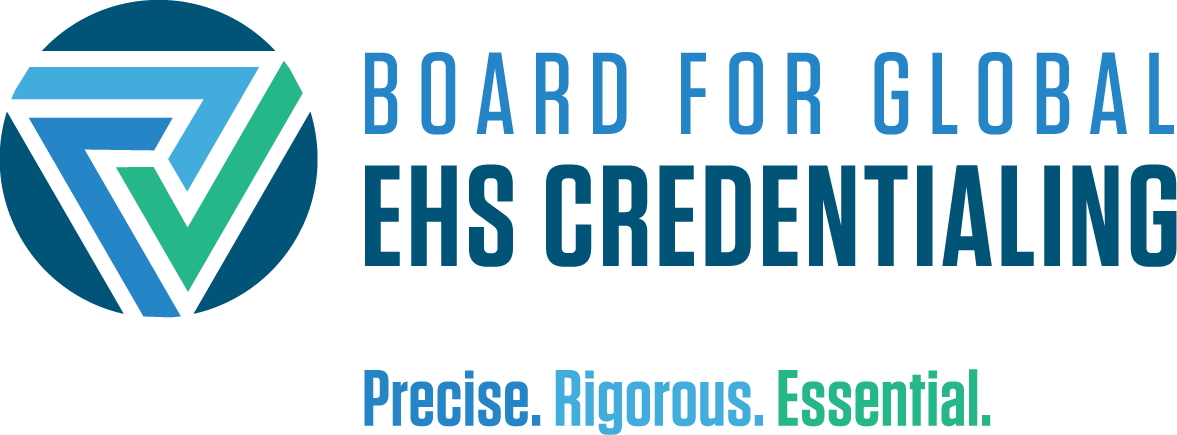
A Guide to Professional Environmental Certifications for Young Professionals
Hiring in today’s job market is best described as “picky.” While jobs are plentiful, education alone may not be enough to receive a job offer. Employers need to know that candidates have specific skills for their needs.
The best way to demonstrate skills, experience, and education is by attaining professional certification through an independent third party.
To find out if becoming certified is right for you at this stage in your environment, health, and safety career, we created this guide to explain how environmental professionals use and view certifications.
Contents
What Is A Professional Certification?
Let’s start with a little Certification 101. Professional certifications are quite common in many industries. They are simply a process of confirming your qualifications and testing, along with maintaining competencies that demonstrate mastery. Grades are one way to demonstrate competency for entry-level positions. In only a short amount of time, however, grades will become much less important than applicable professional environmental experience. So, certifications can help you demonstrate a commitment to your field and the ability to work at the highest level in a way that grades alone cannot.
A robust professional certification/licensure program will require four components:
- Education
- Experience
- Testing
- Ongoing maintenance of knowledge and skills
Certificates, Licenses, And Certifications: What Are The Differences?
Certificates, licenses, and certifications are different types of credentials. While these terms are sometimes erroneously used interchangeably, the American National Standards Institute (ANSI) provides good guidance on the differences:
A certificate can be awarded by a variety of for-profit and not-for-profit organizations for successfully passing a test at the end of a training course. Examples include the certificates awarded for completing courses and tests in digital advertising from platforms such as Google and Facebook. Certificates demonstrate education, knowledge, and skills and usually don’t have renewal requirements.
A license is awarded by government agencies for meeting the requirements of occupations within their jurisdiction. Examples include health-care professions like nursing, and skilled trades like plumbing. Licenses demonstrate the legal ability to perform the work and often require renewal. They can be revoked for incompetence, unethical behavior or for failing to meet renewal requirements.
Certification is awarded by industry certification bodies such as trade associations. Examples include the Environmental Professional In-Training from the Board for Global EHS Credentialing. Certifications demonstrate skill mastery and competence as defined by active practitioners in the field. They are often time-limited and require ongoing continuing education to maintain certification. They can be revoked for incompetence, unethical behavior or for failing to meet the continuing education requirements.
What Are Professional Environmental Certifications?
Professional environmental certifications belong to the larger category of environment, health, and safety (EHS) certifications available to professionals who protect people and the environment. There are different types of EHS certifications for different roles and career stages. Some of the more common EHS certifications are the Environmental Professional In-Training (EPI), Certified Industrial Hygienist (CIH), Certified Professional Environmental Auditor (CPEA), Certified Professional Product Steward (CPPS), Certified Process Safety Auditor (CPSA), and Qualified Environmental Professional (QEP).
Why Is A Professional Environmental Certification Professional Attractive to Employers?
Companies that hire certified professionals do so because the certification gives them confidence that a candidate has been tested to a specific competency level, with a comprehensive understanding and knowledge of the field. Employers also appreciate that certifications from well-respected organizations provide ethical oversight.
What Certifications Do Environmental Professionals Need?
For EHS professionals, certifications aren’t always required. It is a choice to set yourself apart from other qualified individuals. Obtaining a professional certification early in your EHS career has many personal and professional advantages. Environmental practitioners and scientists who hold professional environmental certifications demonstrate sufficient knowledge of environmental science and practice to take on increasing responsibilities.
What Are The Best Environmental Certification Programs?
The best certifications for environmental professionals originate from an independent third-party certification board governed by environmental practitioners.
Some environmental certifications are stackable, meaning they are a sequence of credentials, each built on previous and expanding knowledge to obtain the new, more advanced certification. Stackable certifications are recognized by employers as demonstrating growth in the environmental profession.
What Is The Environmental Professional In-Training (EPI) Certification?
The Environmental Professional In-Training (EPI) certification is for entry-level and early career professionals. Earning the EPI designation benefits students who plan to enter the environmental industry or for environmental professionals who have graduated and have been working in the field for under five years.
The EPI certification demonstrates knowledge of general environmental science by testing competencies in:
- Basic science
- Mathematics
- Treatment and disposal
- Monitoring
The EPI is also an optional first step toward obtaining Qualified Environmental Professional (QEP) status. In the BGC certification framework, the EPI is a stepping stone toward achieving the QEP credential. Practitioners may only hold the EPI designation for seven years, after that, they must sit for the exam to become a QEP and give up the EPI designation.
What Are The Benefits Of Earning An Environmental Professional In-Training Certification?
The EPI certification demonstrates a commitment to excellence in applied environmental science, adherence to a strict code of ethics, and the dedication to make contributions to the environmental profession and community. This helps you advance your career as a new environmental professional.
For young professionals and recent graduates, another benefit of EPI certification is that it opens the door to networking and mentoring opportunities. The EPI mentoring program through the Board for Global EHS Credentialing (BGC) matches EPIs with Qualified Environmental Professionals (QEPs) in a related field, geographic area, or interest. QEP mentors provide you with professional guidance and an introduction to their networks.
Who Is Eligible For The Environmental Professional In-Training Certification?
College or university seniors working toward a bachelor’s degree in physical sciences, earth sciences, natural sciences, engineering, or mathematics are eligible for the EPI, as are graduates of those disciplines with less than five years of professional work experience.
Student applicants admitted into the EPI certification process will take the General Environmental Science (GES) written exam no sooner than the last semester/quarter of their senior year. All others may schedule their exams within their two-year exam eligibility period. The application, examination, and credential maintenance processes require you to pay fees on or before the due dates.
What Is the Difference Between An Environmental Professional In-Training (EPI) And A Qualified Environmental Professional (QEP)?
The Environmental Professional In-Training is a prerequisite certification to the Qualified Environmental Professional and is only available to those with less than five years of professional experience. EPI practitioners have seven years to take the QEP exam before they lose their designation. Individuals with more than five years of experience may pursue the QEP without obtaining the EPI first.
What Are The Requirements To Become An Environmental Professional In-Training?
To become an EPI, candidates apply to the program with the required documentation demonstrating that you:
- Have less than five years of qualifying environmental work experience. (Individuals with five or more years of experience may apply directly for the QEP credential.) OR are a college senior working towards, or a graduate with, a technical bachelor’s degree (or higher) in physical, earth, or natural science; engineering; or mathematics from a regionally accredited college or university or from one that is acceptable to BGC.
- Have passed the General Environmental Science (GES) exam and paid the application fees. College seniors pay a $50 fee and non-college students pay $75.
Applicants are also required to adhere to professional ethical standards. BGC is dedicated to the implementation of appropriate professional standards designed to serve the public, employees, employers, clients, and EHS professionals. Candidates and BGC certified practitioners are required to act in a manner that promotes integrity and reflects positively on the profession, consistent with accepted ethical and legal standards.
How Do You Apply To Become An Environmental Professional In-Training?
To become an EPI, you apply to the program with the required documentation:
- Completed application form
- Ethics attestation that confirms you will adhere to the BGC Code of Ethics and to be governed by the BGC Ethics Case Procedures.
- Official transcripts from an academic degree program approved by BGC, such as programs accredited by the National Environmental Health, Science and Protection Accreditation Council (EHAC).
- Professional references from third parties.
These can all be submitted online.
Once you’ve been accepted into the program, you prepare for and complete the General Environmental Science (GES) exam. Examinations are held at PSI testing centers. You may schedule exams within a two-year exam eligibility period. If you fail an exam, you must wait 120 days before you will be allowed to retake it.
Student applicants approved to be admitted into the EPI certification process can take the GES exam as early as the last semester/quarter of their senior year.
Note that the application, examination, and credential maintenance processes require fee payment on or before the due dates.
Do You Need To Have Prior Work Experience To Become An Environmental Professional In-Training?
Prior environmental work experience is not required to be certified as an EPI. College seniors and individuals with less than five years of professional experience are eligible for the EPI.
Individuals with more than five years of environmental work experience are eligible for the QEP Certification without taking the EPI first.
What Is It Like To Take the General Environmental Science Exam?
The GES exam takes three hours and has 100 multiple-choice questions, which you may go back and review at any time during the exam. There is a short tutorial before the examination and a short survey following the exam.
What Is The Best Way To Prepare for the General Environmental Science Exam?
Preparation for the GES exam may be done through any combination of self-study, exam preparation courses, or group discussions. BGC examination questions are supported by many sources that reflect the underlying purposes and principles of environmental practice, as well as the current knowledge that is expected. The EPI/QEP Exam Advisory Committee recommends reviewing the topics in the GES Exam Blueprint to aid in preparation for the exam.
What Do I Need To Bring To The Exam Testing Site?
On the day of the exam, bring a copy of the email confirmation sent to you by our exam provider and two forms of identification. A non-programmable calculator is permitted for use during the exam.
Learn More
- Review the EPI Candidate Handbook online.
- Review the Board for Global EHS Credentialing Code of Ethics and Ethics Case Procedures.
- Follow us on TikTok and LinkedIn.
BGC Certifications






